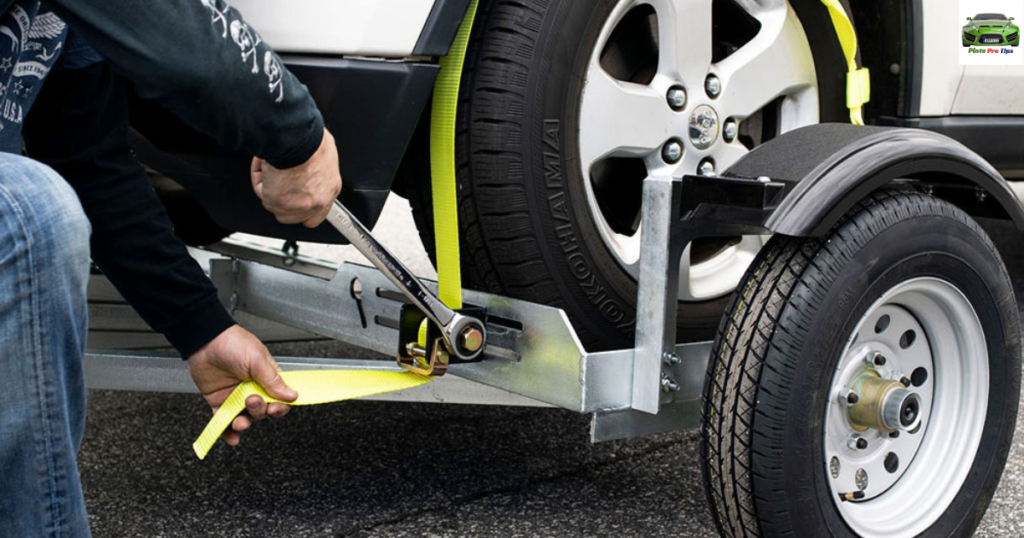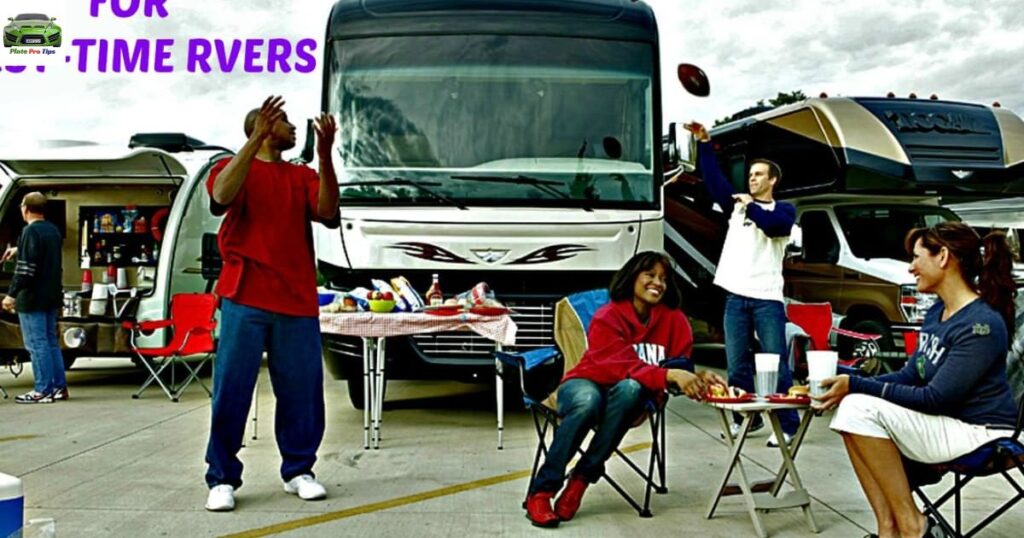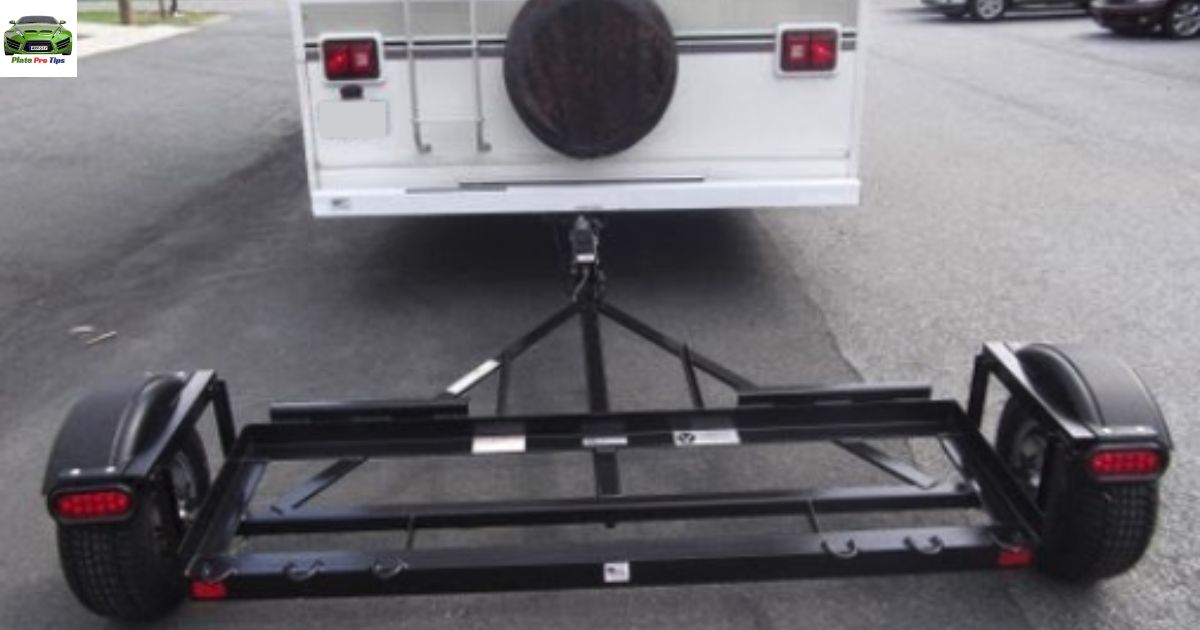A car dolly is a small trailer used to tow a vehicle behind another vehicle. Whether a license plate is required for a car dolly depends on local regulations. In some places, a license plate may be necessary, while in others it may not be required. It’s essential to check with local authorities to ensure compliance with laws regarding license plates for car dollies.
Curious about hitting the road with a car dolly. Car Dolly License Plate?Wondering if you need a license plate.Let’s steer you in the right direction! Explore the ins and outs of whether a license plate is necessary for your car dolly adventures.
Whether a car dolly requires a license plate varies by location. It’s essential to check local regulations to ensure compliance. Some areas mandate a license plate for car dollies, while others do not. Always verify the requirements before hitting the road.
Understanding Car Dolly Regulations
Understanding car dolly regulations is essential for anyone planning to tow a vehicle. These regulations outline important safety guidelines, weight limits, and requirements for proper equipment usage. By familiarizing oneself with these regulations, individuals can ensure they tow vehicles safely and legally, reducing the risk of accidents and ensuring compliance with local laws.
Additionally, understanding car dolly regulations helps prevent damage to both the towed vehicle and the towing vehicle. Regulations often specify proper loading techniques, including securing the vehicle in place and distributing weight evenly. By following these guidelines, individuals can minimize the risk of accidents, such as swaying or fishtailing, which can occur when weight distribution is incorrect.
Overview of Legal Requirements
Understanding the overview of legal requirements is essential for individuals navigating various aspects of life, from business operations to personal conduct. Legal requirements encompass a wide range of regulations, laws, and statutes that govern behavior and activities within a particular jurisdiction. These requirements often cover areas such as employment practices, safety standards, environmental protection, and consumer rights.
Regional Variances in License Plate Rules
Understanding regional variances in license plate rules is crucial for motorists to avoid legal complications when driving across different jurisdictions. These variances can include differences in plate design, requirements for mounting, and regulations regarding specialty plates. Some regions may have specific rules regarding the display of temporary or personalized plates, which could result in fines or penalties for non-compliance. Additionally, being aware of the guidelines for displaying and renewing License Plate can help ensure smooth travels and adherence to local laws.
Moreover, awareness of regional variances in license plate rules is particularly important for individuals who frequently travel between states or countries. Failure to comply with specific regulations in certain areas can lead to inconvenience, legal issues, or even delays in travel plans.
Exploring Different Jurisdictional Policies
Exploring different jurisdictional policies offers valuable insights into how various regions govern and regulate their communities. These policies encompass a wide range of areas, including education, healthcare, taxation, and law enforcement. By comparing and contrasting these policies across different jurisdictions, individuals can gain a deeper understanding of societal norms, cultural values, and governance structures.
Factors Influencing License Plate Necessity
Several factors influence the necessity of having a license plate for vehicles. Firstly, legal requirements mandated by local authorities play a significant role. In many jurisdictions, vehicles are required to display license plates as a form of identification, aiding law enforcement in tracking ownership and ensuring compliance with vehicle registration and taxation laws.
Moreover, practicality and convenience are essential factors influencing the need for license plates. License plates serve as a means of easily identifying vehicles in parking lots, traffic, and other public spaces. They also facilitate transactions such as toll payments and parking permits. Additionally, license plates can convey personalized messages or sentiments, adding a touch of individuality to vehicles.
Considerations for Car Dolly Usage

When considering car dolly usage, several factors come into play to ensure safe and efficient towing. Firstly, understanding the weight capacity and towing capabilities of both the dolly and the towing vehicle is crucial. Exceeding weight limits can lead to instability and potential accidents on the road. Additionally, proper loading and securing of the towed vehicle are essential to prevent shifting or damage during transit.
Ensuring Compliance with Local Laws
Ensuring compliance with local laws is essential for individuals and businesses alike to avoid legal repercussions and maintain a harmonious relationship with the community. Local laws encompass a wide range of regulations, including zoning ordinances, building codes, licensing requirements, and environmental regulations.
Furthermore, staying updated on changes and updates to local laws is crucial to maintaining compliance over time. Laws and regulations can evolve in response to societal needs, technological advancements, and changing economic conditions. Therefore, individuals and businesses must regularly review and assess their operations to ensure continued adherence to the latest legal requirements.
Steps to Ensure Legal Adherence
Ensuring legal adherence involves several key steps to navigate complex regulations and avoid potential pitfalls. Firstly, individuals and organizations must thoroughly research and understand the laws and regulations relevant to their activities or operations.
Practical Tips for Car Dolly Owners

For car dolly owners, practical tips can enhance safety and efficiency during towing operations. Firstly, ensuring that the dolly is in good condition before each use is crucial. Regular maintenance checks, such as inspecting tires, lights, and straps, can help prevent breakdowns and accidents on the road.
Moreover, it’s essential for car dolly owners to be knowledgeable about local towing regulations and laws. Different jurisdictions may have specific requirements regarding towing equipment, weight limits, and safety measures. Staying informed and compliant with these regulations not only helps avoid legal complications and potential fines but also promotes safer towing practices.
Guidance for Smooth Travel Experience

Guidance for a smooth travel experience encompasses several key considerations to ensure a hassle-free journey. Firstly, thorough planning and preparation are essential. This includes researching destinations, booking accommodations and transportation in advance, and creating a flexible itinerary to accommodate unexpected changes.
FAQ’S
Is a license plate required for a car dolly?
No, car dollies typically do not require a license plate.
Can I use my vehicle’s license plate on the car dolly?
No, it’s not advisable to use your vehicle’s license plate on a car dolly.
Are there any exceptions to the license plate requirement for car dollies?
Exceptions may vary by region, but generally, car dollies do not need license plates.
Do I need to register my car with the DMV?
Registration of car dollies is usually not required, but it’s recommended to check with the DMV.
What should I do if I’m uncertain about license plate requirements for my car dolly?
Contact your local DMV or relevant authority for clarification on license plate requirements.
Conclusion
The necessity of a license plate for a car largely depends on local regulations, which can vary significantly from one jurisdiction to another. While many regions do not require license plates for car dollies, it’s crucial to verify the specific requirements in your area to ensure compliance with the law.
By contacting local Department of Motor Vehicles or relevant authorities, individuals can obtain accurate information and guidance tailored to their location, thereby avoiding potential legal issues and ensuring a smooth towing experience. Overall, while license plate requirements for car dollies may differ, staying informed and proactive is key to safely and legally operating these towing devices on the road.

I’m Shoaib, a passionate blogger with 5 years of experience. I love writing about tech. My goal is to share useful information and insights with you. Explore my website to discover exciting content on various topics!




